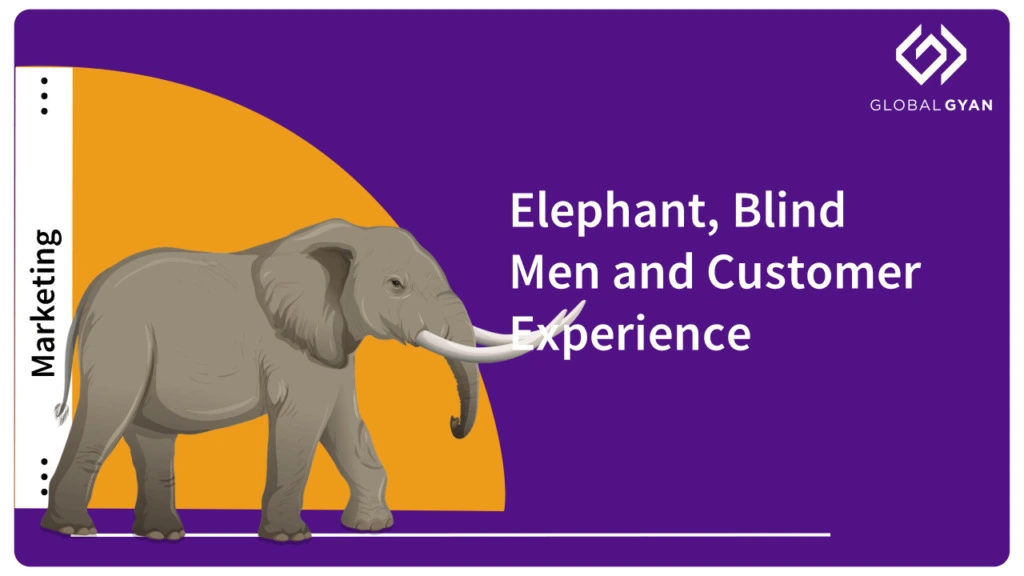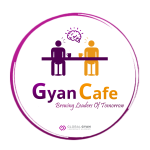Elephant, Blind Men and Customer Experience

One of my favourite childhood tales is the story of the blind men and the elephant. Just for fun, I’m going to narrate it here. Four blind men lived in a village, and one day, a mahout came with an elephant. Joining the excitement of the villagers, the four of them set out to ‘see’ the elephant. One touched the tail and said, ‘Hey, it is like a rope.’ ‘No way, it is like a pillar,’ said the one touching the legs. ‘You fools, it is like a big fan,’ said the one who touched the ears. ‘Of course not, it is like a snake,’ said the one touching the swaying trunk.
Everyone is right in their own way – after all, what we experience drives our perception, conclusions and our belief of the “Truth”
Now let me overlay this on customers and how we experience businesses or customer experience in corporate lingo.
During the lock-down, many of us are keen to stay in and order groceries and essentials from sites like Big Basket or Grofers. I have been having a great customer experience with Big Basket, and I am a delighted convert from ‘neutral’ to ‘promoter’ and like all promoters, I have written about it on social media. Delivery slots are difficult but available, and the quality of items has been consistently good.

Conversely another friend, a regular Big Basketeer, had a very disappointing customer experience with the quality of tamarind delivered (with loads of seeds) vs. her order of ‘seedless’ tamarind. A convert to a ‘detractor’ – and she too, has written this on social media, adding that Milk Basket is a better and more reliable brand.
A third friend, who is vulnerable to infection and so desperately needs the services of the Big Baskets of the world, has been very disappointed with her initial attempts to convert from the local kirana store to Big Basket – the only message she sees is ‘No Slots’. She says she will continue to trust the kirana store and feels big businesses like this don’t offer good customer service, aren’t reliable – that’s a potential customer, lost probably forever.
When I shared my great experience with both of them, one made polite but dismissive noises, the other gave me an earful: how could I stand-up for a brand that was cheating her by billing for one thing and delivering another?
47% of consumers stopped doing business with a company in response to a moment of brand disappointment
An alarming and sobering statistic I picked up from a 2018 Accenture study.
Aren’t customers an unreasonable lot? Why can’t these women understand the difficulties, the additional effort being put to service them? Why can’t they be more forgiving? Why can’t they see the good experience of others and understand that their bad experience is an aberration – they are outliers, the standard is good?
Well, unfortunately, it doesn’t work that way. We all draw conclusions and develop beliefs based on our own customer experiences and no one else’s. If it were otherwise, wouldn’t it be great – children will never repeat the mistakes of their parents. Science has shattered the myth that decision-making is a logical activity – it turns out that all, and I mean all, decisions are driven by emotions, and taken in our subconscious mind before we are even aware that we have made a choice. All data and logic come later – to support our decision.
What can be more emotional than one’s own personal experiences – positive, and they drive loyalty and love for the brand; neutral, they hurt a bit; negative, they drive anger and dislike for the brand.
If brands can accept this reality, then there is no hiding, no excuse – the business has a pressing need to get it right every-time, every instance, with every customer.
99.99% isn’t good enough. The old Six Sigma stories come to my mind – it reminds you that you don’t want to be one of the 3.4 patients in a million who had the defective heart valve replacement!


